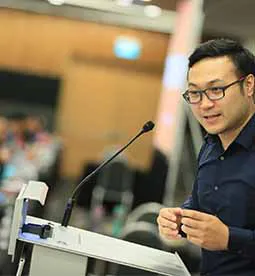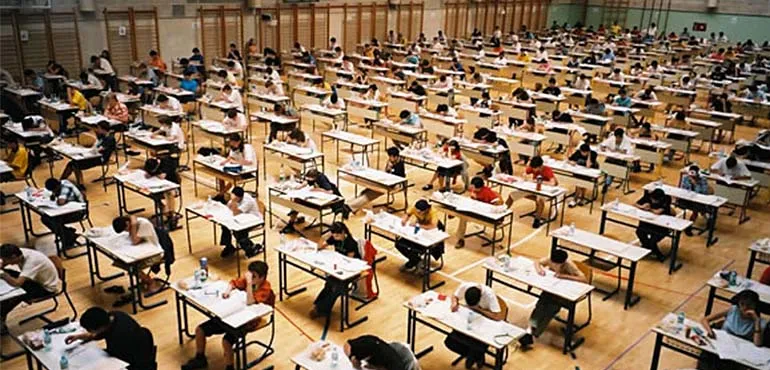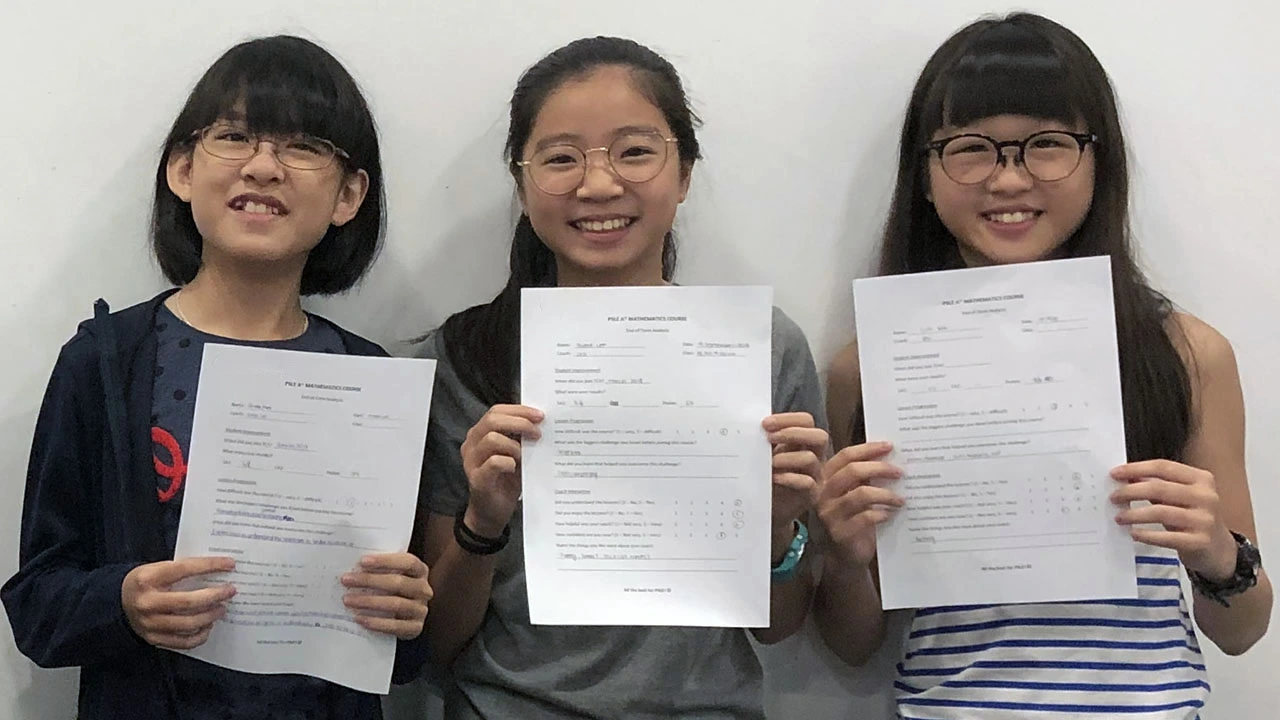Step 1: Advice From The World’s Best Math Tutor
Step 2: Mathematical Teaching Framework
Step 3: Maximising Your Results
The International Mathematical Olympiad (IMO) is the World Championship Mathematics Competition for pre-university students and is held annually in a different country. The first IMO was held in Romania in 1959. More than 100 countries, representing over 90% of the world’s population, send teams of up to six students to the contest. The content ranges from extremely difficult algebra and pre-calculus problems to problems on branches of mathematics not conventionally covered in secondary or high school and often not at university level either.
As you can imagine, participants in the IMO are the world’s best mathematical minds. Being selected as one of the Top 6 in the nation who is adept enough to take part in the IMO is a feat in itself – much less winning. One of the top teams in the IMO is the United States.
Step 1: Advice From The World’s Best Math Tutor
Here’s what the Head Coach of the USA IMO Team, Mr. Po-Shen Loh has to say about the approach to learning mathematics:
The biggest problem with math is a branding issue. People think that math is rote (repetitive), boring and about memorisation. The fact is that math does not need to be all that, it is simply a thinking exercise! It’s logic. It’s saying that if something was true, then something else is always true. And as you learn how to assemble these chains of logic, you can use that skill for anything.
If you ask me what math is, I’ll say that math is the distilled heart of thinking.
Po-Shen Loh (IMO Team Head Coach)
The angle is actually different than what some people might expect. We should not actually optimise for whether or not our students will score top marks in this particular examination or win in this particular competition that’s coming up. The goal is to not only teach skills that could be useful in this exam or contest but to also show how the math that they are working on could later be used to solve other types of challenges in other areas and subjects. We do not only focus on mathematical techniques but also talk about some of the other knowledge and skills that one might need besides maths.
This biggest difference between a math competition problem and a textbook problem is that in the textbook problem, you were supposed to already have been taught how to solve it, whereas a competition problem is specifically selected based on the ingenuity of the problem in the hope that you will not know how to solve it when you see it.
That’s why everybody benefits from playing with math competition problems – they teach you how to invent new ways to think about challenges. And the kinds of challenges we are facing in the world today are not textbook problems. The real purpose of engaing in these math contest problems is so that people can get a chance to exercise that creative muscle when it comes to creating analytical ideas.
So, as suggested by the Best Math Tutor, spend more time thinking about how you might come up with an idea on how to solve a problem as opposed to having students be used to the idea that someone is going to show them what to do and just copy it. Bring them along to discover the reason why we should take certain steps in problem solving so that eventually, they will be able to invent these steps themselves.
Step 2: Mathematical Teaching Framework
A survey of 500 parents, conducted by The Straits Times and research company Nexus Link, found that 7 in 10 enrolled their children in extra classes. But how many of them are selecting the right maths tuition centre for their child? We have interviewed parents of our top performing students from the PSLE 2019 cohort (the year where tough PSLE questions made the news) and are revealing how they made the best decisions for their child.
When it comes to Mathematics education, it is important to note the direction in which we are heading. Yes, it is true that the Ministry of Education (Singapore) has been placing emphasis on Critical Thinking as part of their 21st Century Core Competencies. This means that challenging questions that have not been taught in school is being inserted into the PSLE examination. Many parents are angry and frustrated and feel this is not fair – but the main reason for this is to separate the AL1 (A*) students from the A and B students.
In Jan 2019, Coach Leo addressed the cohort of the Southeast Asian Mathematical Olympiad during his opening speech at Suntec City Convention Centre, expressing his amazement at the young age of the competitors and the standard of maths education across Southeast Asian countries in this day and age.

He spoke to a crowd of more than 1,500 students and parents, acknowledging that education has become so competitive in the 21st Century. Parents have to take the initiative to help their children gain extra-curricular experience and achievements in order to for them to stand a chance at entering top schools in Singapore, the Asia Pacific region, America and Europe.
Since 2016, MOE has revamped the Primary School Math curriculum to place more emphasis on critical thinking skills. Most parents don’t know this, but these critical thinking skills usually come in the form Math Olympiad (MO) type of questions. You see, Math Olympiad (MO) tests students in Critical Thinking skills. It’s the highest form of logical reasoning and creative thinking. Every year the brightest minds around the world compete in Math Olympiad competitions to test their critical thinking against one another (like in the IMO).
And increasingly, MOE has been incorporating a lot of MO questions into PSLE to test students on their critical thinking skills. (Remember the PSLE triangle and circle questions recently that stunned many parents, even to the extent of questioning MOE regarding the toughness of Primary School Math? There are many more of such MO questions found in PSLE paper.) Together, these MO questions make up 30% of the PSLE paper. And, once again, it’s used mainly to separate the AL1 from the AL2/3 students.
This is why students who have been exposed to Math Olympiad Training tends to easily ace the PSLE Maths paper.
Students today need to have critical and inventive thinking skills to thrive in a complex world, where jobs now require non-routine analytical and interactive tasks.
Senior Minister of State for Education Indranee Rajah
Unfortunately, most students are not prepared to solve these types of MO questions. This is one of the biggest reasons why many students are always stuck at AL2/3, unable to score more than 90 marks, even after practicing a lot and studying very hard. These are tell-tale signs that your child lacks the critical thinking skills needed to score AL1. And if this goes on, it’s going to be very challenging to secure an AL1 for PSLE Maths Exam. The Best Math Tutor in Singapore would advice against this.
Best Maths Tuition Approach
At Tutify Education, we conduct lessons in such a way that develops students’ logical reasoning and creative thinking skills. We’re the only maths tuition centre in Singapore with a strong and proven CTS training process that is developed by Coach Leo, specifically targeted at Mathematical problem-solving and in-built into our curriculum. This is how students are trained in our primary math tuition course. This is the biggest reason why our students see rapid improvement in their results.
Step 3: Maximising Your Results

Because it’s so competitive, whether or not your child achieves the A grade depends on how well he or she performs on that day. It’s very typical for students who score more than 90 marks consistently in school exams to miss out in the PSLE because they couldn’t perform at their best on that day. After training hundreds of students to participate in world competitions, we have found some highly effective exam strategies to help them be less nervous, more focussed and be able to perform to the best of their ability. This will be very useful for not only for Math, but other subjects as well.
That’s right, at Tutify Education, we have a complete roadmap of how to help your child improve 2 grades within 6 months.
Here is a snippet of what your child will be getting:
- Uncover knowledge gaps and clarify concepts on the spot with personalised guidance from our experienced coach.
- Learn 28 strategies and tools for solving PSLE problem sums that 90% of our AL1 Students use to secure their marks
- Discover our 5-step problem analysis approach used to decode complex and tricky non-routine examination problems and allow our students to solve problems 3x faster
- Develop Crticial Thinking through our strong and proven training process that has helped hundreds of students solve challenging, non-routine exam and competition problems
- Invent your own strategies by observing trends and patterns in the question
- Be exposed to Math Olympiad problems and gain the benefits of finding new ways to think about challenges
- Use logical reasoning to make connections between different facts and arguments to simplify your problem-solving approach
For every destination, there is a path that leads to it. The question is, is the path you’re on the shortest and most efficient one?
Coach Leo
Mathematics (along with science) is regarded as the most important criteria for entry into top schools and universities around the world. It is no wonder that parents are anxious for their children to excel in this subject. With the influx of math enrichment and tuition centres in Singapore, you might have a hard time deciding on the best math tuition centre for your child. Amongst the many tuition centres that offer a wide variety of subjects, only a few specialise in maths.
If you have a child who is scoring less than 70 marks in Mathematics and you are serious about helping him or her improve 2 grades within 6 months, keep in mind that the right approach makes all the difference.
Be sure to select the best math tuition centre in Singapore that has a structured curriculum and teaching methodology developed by a specialist in the field. At Tutify Education, we use a strong and proven teaching methodology that has helped hundreds of students secure an AL1 in the PSLE Maths Exam. This makes us one of the most highly sought after maths training centres in the region. The curriculum is prepared by Coach Leo and is constantly updated every month to keep up with the latest PSLE question trends as well as problem-solving techniques.
So, if you’re serious about helping your c…
Conclusion
Mathematics is a unique animal. Colliding with it head on with rote learning and memorisation will only serve to demoralise a child and put him or her on the road to failure. Creativity and out of the box thinking is the way to go. Expose your child to competition questions instead of textbook questions to inspire an independent thought process in which they can invent their own strategies to solve it.
Be it for the purposes of securing a grade or simply to increase your child’s interest in the subject, there are only benefits to doing non-routine questions. At Tutify Education, at least 95% of our PSLE students have improved 2 grades within 6 months. But 100% of those who have gone through our MO training course have easily attained an AL1 (A*) in the PSLE Mathematics exam.



